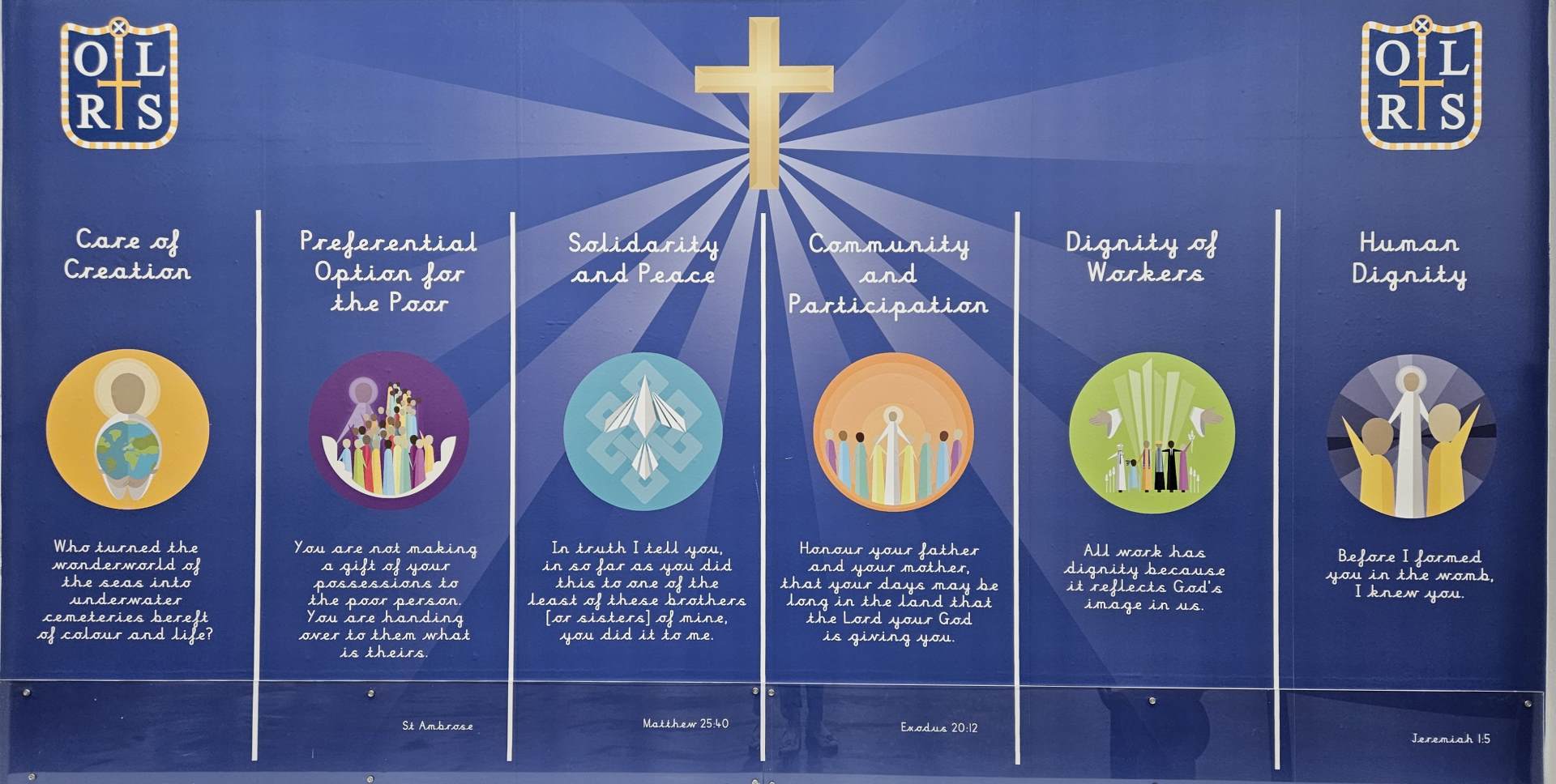Catholic Social Teaching

That Christ may dwell in your hearts through faith; that you, being rooted and grounded in love, may have strength to comprehend with all the saints what is the breadth and length and height and depth, and to know the love of Christ that surpasses knowledge, that you may be filled with all the fullness of God. Ephesians 3:17–19
Catholic Social Teaching is the Church’s invitation to live out the Gospel by working for a world that reflects God’s justice and love. It begins with the belief that every person is created in the image of God and therefore possesses an inherent worth that can never be lost. From this flows a call to build relationships of respect and compassion, to care for those who are vulnerable and to act for the common good.
It challenges us to see that faith is not confined to prayer or worship but is lived in the choices we make each day; in the way we treat one another, use the earth’s resources and respond to injustice. Catholic Social Teaching asks us to notice where people are excluded or suffering and to stand alongside them, speaking out for fairness and offering practical support. It also reminds us that the wellbeing of each person is bound up with the wellbeing of the whole human family and of the created world itself.
At Our Lady of the Rosary this vision shapes the whole life of the school. It inspires the way we pray and celebrate together, the way we learn, and the way we reach out beyond our own community. Our pupils are encouraged to take an active role in school life, to contribute to decisions that affect them and to recognise their responsibility for the wider world. We help them to make clear links between the actions we take as a community and the teachings of Scripture, so that they understand how the Gospel calls us to love, serve and work for justice. Through worship, learning and service they come to see that living their faith means showing love in action and helping to build a more just and peaceful society.

Find out more about our six Catholic Social Teaching themes by clicking on the links below:
Care of CreationCommunity and ParticipationDignity
Across all areas of the curriculum, we guide children to notice and reflect on the principles of Catholic Social Teaching as part of their learning. Through thoughtful questioning, discussion and purposeful links, we help them recognise themes of dignity, justice, stewardship, community and peace within the subjects they study and the world around them. This approach encourages children to develop a way of seeing that is shaped by compassion and responsibility, helping them to understand how their learning connects with their role in building a hopeful and caring society.
ComputingEYFSGeographyHistoryMusicPEPSHEScience

